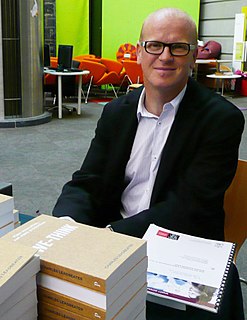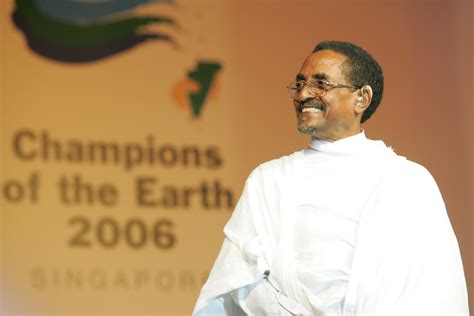A Quote by Charles Leadbeater
In the developing world, people often use quite basic technology. Many of the most imaginative schemes are using what we'd count as old tech.
Quote Topics
Related Quotes
People always think of technology as something having silicon in it. But a pencil is technology. Any language is technology. Technology is a tool we use to accomplish a particular task and when one talks about appropriate technology in developing countries, appropriate may mean anything from fire to solar electricity.
I'm a woman in technology, I think that we have to consider our border and use the technology we have to be sure that we secure it. If you build a six foot wall, somebody may jump eight feet. But, maybe there's surveillance... there's many high tech things that we can use to be sure we are protecting our borders.
The Nuffield report suggests that there is a moral imperative for investment into GM crop research in developing countries. But the moral imperative is in fact the opposite. The policy of drawing of funds away from low-cost sustainable agriculture research, towards hi-tech, exclusive, expensive and unsafe technology is itself ethically questionable. There is a strong moral argument that the funding of GM technology in agriculture is harming the long-term sustainability of agriculture in the developing world.
Introducing a technology is not a neutral act--it is profoundly revolutionary. If you present a new technology to the world you are effectively legislating a change in the way we all live. You are changing society, not some vague democratic process. The individuals who are driven to use that technology by the disparities of wealth and power it creates do not have a real choice in the matter. So the idea that we are giving people more freedom by developing technologies and then simply making them available is a dangerous illusion.
As more girls get basic schooling, larger numbers will move up the educational ladder - some to pursue science, technology, engineering, and mathematics. That's important because workplaces around the world, especially in many developing and emerging-market countries, are becoming more automated, favouring workers with technical skills.
I think one of the issues quite often, from a mental health perspective, that people find power behind a gun. Frequently, that is the issue behind most people. They feel a loss of power. They use a gun to sort of equalize things. And, of course, once the process begins, quite often people die in that process.
But we must also look at renewable heat technology. More combined heat and power schemes, putting waste heat to better use. More district heating schemes. And more electric air and ground-source heat pumps, drawing warmth from the outside world to heat the indoors. Better insulation, smarter homes, and more efficient heating can help us cut our energy demand.
How often people speak of art and science as though they were two entirely different things, with no interconnection. That is all wrong. The true artist is quite rational as well as imaginative and knows what he is doing; if he does not, his art suffers. The true scientist is quite imaginative as well as rational, and sometimes leaps to solutions where reason can follow only slowly; if he does not, his science suffers.



































